In this week's case discussion, we revisit a submission from Prof David Wilkinson, in which a...
.jpg?height=200&name=HCE%20HubSpot%20blog%20images%20600x350%20(33).jpg)
Increase your clinical knowledge of aesthetic principles and the safe practice of evidence-based facial cosmetic procedures.
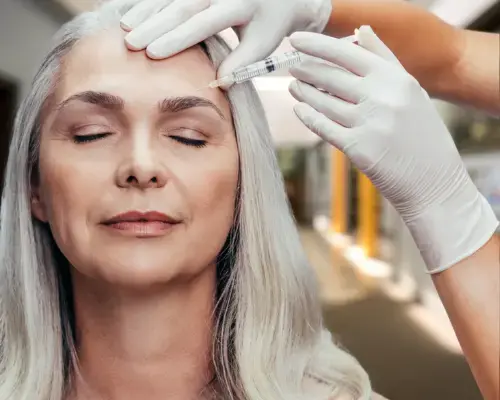
Gain a new level of confidence and competence in your aesthetic practice and add more advanced cosmetic services to your clinic.
- Add laser, hair removal, and advanced non-surgical aesthetic techniques to your practice.
- This course is perfect for practitioners building on prior training and experience.
- This course is for medical doctors and International Medical Graduates.
- The online course is quality-assured by Bond University.
- CPD accredited.
Fulfils 50 hrs for medical professionals in Australia*
100% online
Online + workshop
Fully online: $2595
Online + workshop: from $3795
Special rates available
88.5 hrs
Self-paced
2026
19 April in Sydney
2 August in Brisbane
18 October in Melbourne
*provided an outcome measurement activity with a minimum of 5 hours is completed.

- Understand anatomy and manage complications to improve patient safety.
- Utilise chemical peels for skin rejuvenation and sun damage repair.
- Administer advanced wrinkle-relaxant treatment for a full-face approach.
- Upskill in laser treatments for vascular and pigment conditions, tattoo and hair removal.
Get unlimited access to all course content, additional learning materials, ongoing post-course support, and more.
*These topics are covered during the face-to-face sessions in the optional skills workshop. Find out more about our new-and-improved workshops below and view the workshop program here.
In this module, the process of skin ageing is examined commencing with the function of the skin and what happens to skin structure as the skin ages, including skin of colour. Intrinsic and extrinsic factors that cause the skin to age are discussed. Assessment tools including the Fitzpatrick skin types, Glogau classification, Johnson’s wrinkle scale, Weiss’s, Merz scales and Lever are outlined. Quizzes are presented to encourage participants to familiarise with the most common assessment tools. Grading acne severity scales and Roberts hyper-pigmentation and scarring severity scales are discussed in detail. Skin analysers are introduced as a potential skin assessment tool. The content then moves to treatment planning information including prevention, medical, aesthetic and cosmeceutical options.
This module details minimally invasive aesthetic procedures including deoxycholic acid, wrinkle-relaxant treatment, volumising techniques, and biostimulators. The importance of knowing your muscular and vascular anatomy is stressed to minimise adverse reactions. Severe reactions including syncope, seizures and anaphylaxis are detailed. Local anaesthetic complications, ptosis, skin irritations, bruising, dysphagia, dysphonia, pain, granulomas, necrosis, asymmetry, discolouration, oedema, angioedema, lumps / nodules, infection, biofilm, and vascular occlusion are some complexities covered. Prevention strategies to minimise adverse outcomes are outlined and symptoms of complications and managing these complications are included.
The first unit of this module focuses on chemical peels. Different peel options are described to determine the most appropriate treatment plan. Indications and contra-indications are described. The benefits of chemical peels are listed and an introduction to combination and progressive peels is provided. The patient consultation includes skin assessment and the steps to perform a peel. Recognising and managing adverse effects finalises this unit.
Unit two outlines the difference between cosmetics and cosmeceuticals and the role cosmeceuticals can play in aesthetic medicine. It outlines how to identify skin conditions that would benefit from cosmeceuticals and how to prescribe cosmeceuticals as part of aesthetic medicine. The classification of cosmeceuticals and an explanation of cosmeceutical ingredients including AHA, BHA, antioxidants, vitamins, retinoids, depigmenting agents, botanicals, peptides and exfoliants are detailed. The module concludes with information on how to prepare the skin, regime options and aftercare.
This module opens with revision of facial anatomy and techniques taught in the Introduction to wrinkle-relaxant treatment module. Unit one focuses on the upper face covering the glabella, frontalis, crow’s feet and brow lift areas. Unit two focuses on the lower face covering the nasalis, gummy smile, lip lines, depressor anguli oris, mentalis and masseters areas. Unit three focuses on the platysma area including anatomical considerations and how to approach treatment for this area. Unit four outlines hyperhidrosis and how wrinkle-relaxant treatment can be used to treat this excessive sweating condition. The technique and side effects are detailed for the underarm, face, upper lip palms and soles.
This module explores advanced volumiser applications commencing with when to use a needle versus cannula and covers the periorbital, brows, midface including pre-auricular and lower face areas. It describes different volumising techniques that can be used for both men and women and how to manage complications.
Unit three outlines the use of volumisers for the lower face including accordion lines, chin, perioral, lips and jaw line. Relevant anatomy is revised and chin augmentation assessment rules are included.
The final unit introduces skin boosters and their role in aesthetic medicine.
This module commences with listing the contraindications for the use of lasers. The premise of using lasers is knowing that laser technology and selection are related to wavelength, pulse duration, fluence and spot size. Various laser options including modes of operation assist in determining what lasers could be used for what conditions.
The use of lasers for treating superficial and deeper vessels is included. Congenital vascular conditions including port wine stain, haemangiomas and lymphangiomas are described.
The module then moves to treating acquired vascular conditions such as cherry angiomas, spider naevi, venous lake, telangiectasia, rosacea, poikiloderma of civatte and peri-orbital vessels.
This module commences with outlining the considerations when deciding which laser to use for treating pigmented skin conditions. Laser treatment options for epidermal and dermal congenital and also epidermal and dermal acquired pigments are listed.
Melasma treatments including melasma with vascular components treatments are outlined. The side effects of laser treatments are listed including the management of these side effects.
In this laser tattoo removal module, unit one focuses on laser assisted tattoo removal and the classification of types of tattoos and inks used that will determine the outcomes of tattoo removal. Each type of tattoo is detailed: amateur, professional, cosmetic, traumatic and medical tattoos. Tattoo colours, particle size and depth are considered when deciding laser treatment. Laser settings vary depending on the ink particle sizes. Patient preparation and post operative care are addressed including managing any complications.
Unit two focuses on laser assisted hair removal. The hair follicle structure and growth phases are discussed including the two types of hair – vellus and terminal. Descriptions of how the lasers destroy the hair bulb and histology are provided.
The module then moves to laser safety and settings. Patient preparation prior to the procedure, post procedure and possible complications finalise this module.

Dr Simon Clark runs the pathology component of the postgraduate certificate courses in skin cancer medicine at The University of Queensland and lectures in the Masters of Medicine course. He has been involved in dermatopathology education for more than 20 years, training registrars in dermatology, pathology and plastic surgery. More recently he has been active in GP education. One of the best known dermatopathologists in Australia, Simon was recently appointed a visiting professor in dermatology at the Tehran University of Medical Sciences.

Fellow of the Cosmetic Physicians College of Australasia
Aesthetic Medicine Physician and Medical Director at Southern Cosmetics, Victoria
HealthCert Course Chair for Aesthetic Medicine
Dr Jenny Kimmins spent many years in General Practice before developing an interest in management and treatment of skin conditions. She has over 10 years’ experience in cosmetic medicine, including the management of acne and rosacea, laser skin treatments, dermal fillers and anti-wrinkle injections. She is a lecturer and trainer in aesthetic medicine and injectable cosmetic treatments. Jenny completed a postgraduate Diploma in Dermatology with the Australian Institute of Dermatology and is a trained skin cancer physician with a special interest in sun-damaged skin. She was recently awarded a Fellowship of the Cosmetic Physicians College of Australasia.

Medical Director, Main Street Cosmetic and Skin, Lilydale Victoria
Dr Anthony Rixon graduated from the University of Queensland in 2001 with a post-graduate degree in Medicine. Prior to this, he undertook a Bachelor of Biomedical Science majoring in Physiology. He has trained extensively in hospitals both in Australia and overseas.
In 2009, he completed expert training in general practice, achieving his Royal Australian College of General Practice Fellowship (FRACGP). He has since focused on skin and cosmetic medicine. Anthony has also completed a Masters of Medicine specialising in skin cancer. This is recognised as the most comprehensive qualification in skin cancer diagnosis and treatment. Additionally, he has detailed knowledge of facial anatomy and understands the intricacies of structures underneath the skin.
Anthony is recognised as a skilful injector through his participation in advanced workshops on dermal filler and wrinkle-relaxant treatment. He regularly attends conferences showcasing the most current information on cosmetic medicine, staying up-to-date with the latest technologies and techniques.
*Note: The workshop component is an optional self-submitted CPD activity and is not university reviewed.
Our Aesthetic Medicine workshops have had a refresh!
New format. More hands-on. Same trusted presenters.
We have trimmed the theory, streamlined demonstrations, and built in more hands-on practice —
making these our most practical Aesthetic Medicine workshops yet.
WHAT'S NEW?
💉 90 minutes of hands-on injecting included in every workshop.
💡 Less theory, more time for hands-on practice — just as you asked.
🎓 A more focused, technique-based format designed for real clinical application.
If you have joined us before, now is the time to return and experience the difference!
from $2595
*provided an outcome measurement activity with a minimum of 5 hours is completed.
Bundle two courses and save 5%, or three courses and save 10% upon enrolment.
Talk to us about deferred payment options, registrar scholarships and special rates.
*For Australian residents only: Online course prices are shown exclusive of GST. If you are GST-registered, please enter a valid ABN at checkout to ensure GST is not applied. Otherwise, 10% GST will be added at checkout. View our FAQ for more information.
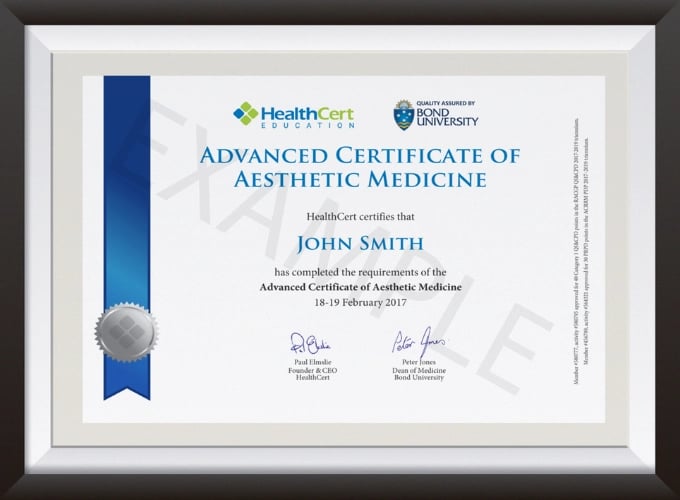

I wanted to diversify my GP practice and to expand more on an area of special interest. The HealthCert aesthetic medicine online courses and practical workshops have been precisely what I had been looking for. The program has taught me so much relevant theory and extremely useful practical techniques, such that I feel encouraged and supported on my journey in this new area of medicine. The facilitators in the workshop are highly knowledgeable and are such wonderful mentors, providing real life cases and sharing their extensive experience, which has been invaluable.
Dr S. Rajalingam
This is a very effective course which enhances your knowledge in aesthetic medicine in a short period of time. Highly recommended.
Dr W. Y. Lai
The Advanced Certificate of Aesthetic Medicine gave a broad overview of aesthetic medicine - good for a doctor who is thinking of entering the field.
Dr R. Blum
I really enjoyed this course and look forward to the third part of this pathway. The presentations and course material were so relevant!
Dr F. Cranwell
The course was well planned and so informative and interesting. Well organised with a great team to keep me on track. Lots of new information and so much fun! Thank you.
Dr M. Carstens
Having completed six HealthCert courses now, I am feeling professionally confident and am able to consider a future in aesthetic medicine. I have gained valuable knowledge and confidence in my subspecialities of interest. The courses have allowed me to develop and grow professionally as well as network with some fabulous professionals.
Dr S. Shinwari
| RACGP Activity Number | ACRRM Activity Number | Activity Title | Education Hours | Performance Hours | Outcome Hours | ||
|---|---|---|---|---|---|---|---|
| 453174 | 31128 | Lasers: Vascular conditions | 453174 | 31128 | 5 | 5 | 0 |
| 453187 | 31130 | Lasers: Tattoo and Hair Removal | 453187 | 31130 | 5.5 | 5 | 0 |
| 453181 | 31129 | Lasers: Pigment conditions | 453181 | 31129 | 4 | 5 | 0 |
| 453069 | 31125 | Advanced Chemical Peels and Cosmeceuticals | 453069 | 31125 | 4 | 5 | 0 |
| 453065 | 31124 | Complications including relevant anatomy | 453065 | 31124 | 4.5 | 5 | 0 |
| 453107 | 31126 | Advanced wrinkle-relaxant treatment and hyperhidrosis | 453107 | 31126 | 4.5 | 5 | 0 |
| 453171 | 31127 | Advanced volumising techniques | 453171 | 31127 | 5.5 | 5 | 0 |
| 453060 | 31123 | Skin ageing principles | 453060 | 31123 | 4.5 | 5 | 0 |
| 809648 | 32990 | Undertaking a cosmetic consultation Outcome Improvement Activity | 809648 | 32990 | 0 | 0 | 8.5 |
| Total hours | 37.5 | 40 | 8.5 | ||||
Note: The workshop component is an optional self-submitted CPD activity and is not university reviewed.
The purpose of outcome measurement activities is to improve your clinical confidence in managing an identified learning gap. Outcome measurement activities are not a requirement of our Professional Certificate of Advanced Certificate courses; they are a requirement for Australian CPD purposes.
HealthCert Education provides a variety of outcome measurements activities to suit your needs:
The Advanced Certificate of Aesthetic Medicine will meet the needs of medical professionals who are interested in enhancing their clinical knowledge in aesthetic principles and the safe practice of the latest evidence-based aesthetic medicine procedures. Ideal for practitioners who are considering working in the field, the course provides a new level of confidence and competence relevant to primary care, enabling participants to integrate cosmetic services into their day-to-day work.
This course is for physicians, nurse practitioners and degree-qualified nurses who are registered with AHPRA. Participants must have completed the Professional Certificate of Aesthetic Medicine (or a qualification deemed equivalent) and HealthCert also recommends successful completion of at least 25 cases of aesthetic medicine prior to enrolment.
Participants do not have to pass an IELTS test but, as the courses are delivered in English, proficiency in listening, reading and writing in English is assumed.
Professionally accredited qualifications and prior studies may be recognised for entry into this course. Please send an email to credit@healthcert.com for an individual assessment of your prior qualifications and experience.
This email should contain information about your educational history and work experience that specifically pertain to the content and procedures covered in the Professional Certificate of Aesthetic Medicine. Please include any applicable certificates and course outlines from previous education.
The relevant Course Chair will make a determination on your application within two to three weeks.
This certificate course meets the minimum 50 hours CPD annual requirement across all three mandatory CPD activity types, provided an outcome measurement activity with a minimum of five hours is completed. You may use an optional HealthCert outcome measurement activity or develop your own.
Outcome measurement activities are not a requirement of Professional or Advanced Certificates.
Upon successful completion of the course requirements, course participants will receive the Advanced Certificate
This certificate course:
To learn more about the delivery of certificates in Australia and overseas, please visit our FAQs.
Professional Diploma Pathway
This course is the second stage of the diploma pathway. The full pathway is the Professional Certificate of Aesthetic Medicine the, Advanced Certificate of Aesthetic Medicine and the Professional Diploma of Aesthetic Medicine.
Postgraduate Pathway for Aesthetic Medicine awarded by the University of South Wales
This pathway is suitable for doctors who are mainly interested in clinical academic study. The Postgraduate Diploma and Master of Science in Cosmetic Medicine is studied entirely online through Diploma MSc and awarded by the University of South Wales (UK). Medical professionals who successfully complete the HealthCert Professional Certificate, Advanced Certificate and Professional Diploma of Aesthetic Medicine will be eligible to apply for Recognition of Prior Learning (RPL) for module 1 of the Postgraduate Diploma of Cosmetic Medicine which will save them time. When the Postgraduate Diploma has been successfully completed, doctors can apply for credit towards the MSc in Cosmetic Medicine awarded by the University of South Wales. In addition, they will receive up to £500 scholarship for the MSc course and £250 for the PGDip course when they inform our partner’s applications team that they are a HealthCert graduate. Please apply directly here.
Certified Clinical Attachments Pathway
Clinical attachments are optional and available on a 1:1 basis. These provide the opportunity to observe aesthetic medicine and ask questions of the expert performing the procedures. HealthCert certificates are awarded for participating in clinical attachments. Many doctors find this a very valuable learning experience.
This organisation is an RACGP-accredited CPD provider under the RACGP CPD Program.



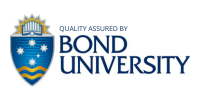
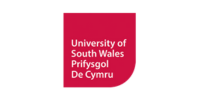
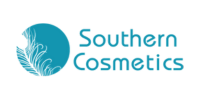
Don't see your question? Explore other faqs or talk to us.
Fees will vary based on the program and study option selected (fully online vs online + optional practical workshop). Payments can be made upfront or in monthly instalments. Special rates and various payment options are available. GP registrars and doctors in training enjoy a scholarship of up to $500. Talk to us to learn more.
Completion of any HealthCert course or attendance at an event will enable you to access the HealthCert Alumni Program which includes:
HealthCert Education is pleased to issue digital credentials for alumni. Digital credentials are a permanent online record of your successful completion of a HealthCert course and are issued to all course participants in addition to PDF certificates. If you are based in Australia, you also have the option to order a hard copy of your digital certificate for a small additional fee.
The recommended study duration of this certificate course is 88.5 hours, which includes study of the pre-course activities and readings, online lectures, live tutorials, and online assessment. This self-paced course offers the flexibility of 100% online study in your own time, at your own pace, in your own home or office, with no mandatory face-to-face requirements. You are not required to be online at specific times but can view and replay video lectures at your convenience.
All HealthCert courses meet World Federation of Medical Education standards. This certificate course qualifies for CPD hours from the Royal Australian College of General Practitioners (RACGP) and the Australian College of Rural and Remote Medicine (ACRRM) in Australia. It is recognised by the Royal New Zealand College of General Practitioners (RNZCGP) in New Zealand. It is recognised by the Hong Kong College of Family Physicians (HKCFP) in China. It is a self-submitted activity in Dubai and the United Kingdom. It is a self-submitted activity through the College of Family Physicians in Canada. If you live or work outside one of the above-mentioned countries, please contact us on admin@healthcert.com to discuss whether this course can be recognised in your country.
Want to stay up-to-date with the latest case studies, podcasts, free video tutorials and medical research articles pertinent to primary care?
Our Education Advisors can assist you with any queries and tailor our education pathway to suit your current expertise, interests and career goals.